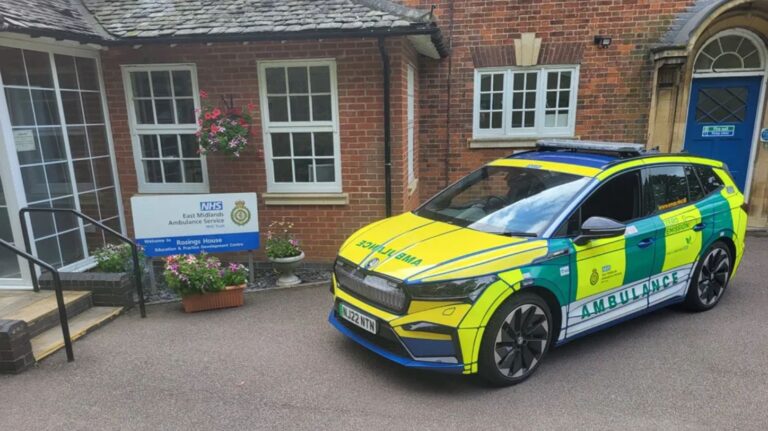Following consultation with clinical groups, patients and public health experts, the NHS has announced plans to decarbonise its fleet in a new travel and transport strategy.
The organisation, which reportedly has the second largest fleet in the UK, calculates its vehicles, combined with the impact of commissioned services and staff travel, directly contributes to the 36,000 deaths that are said to occur every year from air pollution.
The NHS has more than 20,000 vehicles travelling more than 460 million miles each year, and it has committed to fully decarbonise its fleet by 2035, with ambulances following in 2040.
Its Net Zero Travel and Transport Strategy outlines several key steps to reach net zero:
- By 2026: Sustainable travel strategies will be developed and incorporated into trust and integrated care board green plans.
- From 2027: All new vehicles owned and leased by the NHS will be zero-emission vehicles (excluding ambulances).
- From 2030: All new ambulances will be zero-emission vehicles.
- By 2033: Staff travel emissions will be reduced by 50% through shifts to more sustainable forms of travel and the electrification of personal vehicles.
- By 2035: All vehicles owned and leased by the NHS will be zero-emission vehicles (excluding ambulances) and all non-emergency patient transport services will be undertaken in zero emission vehicles.
- In 2040: The full fleet will be decarbonised. All owned, leased, and commissioned vehicles will be zero emission.
The benefits to society of implementing the commitments set out in the strategy are valued at more than £270m each year, with more than £59m saved per year by the NHS able to be re-invested into patient care.
The strategy describes the interventions and modelling underpinning these commitments, walking through each of the major components of the NHS fleet and outlining the benefits to patients and staff.
Trusts will be provided with a forthcoming net zero travel and transport implementation toolkit and technical support document to aid local and regional delivery.
NHS England said strong progress had already been made in decarbonising its fleet, with NHS Innovation delivering the world’s first zero-emission ambulance in the West Midlands, and Sheffield Children’s NHS Foundation Trust becoming the first NHS trust in the country to fully decarbonise its fleet.
READ MORE: London primed for UK’s first hydrogen-powered ambulance
Seven ambulance trusts are currently trialling 21 zero-emission emergency vehicles, six of which are dedicated mental health response vehicles, cutting emergency response times and reducing demand on conventional double-crewed ambulances.
Studies concluded that £3,500 per annum in fuel and 283 tonnes of CO2 were saved across five years while maintenance costs were reduced by 20%.
In addition, 12 new electric 19-tonne trucks are currently being trialled across the NHS, while London Ambulance Service NHS Trust has procured 42 fully-electric fast response vehicles.
South Central Ambulance Service has purchased 10 electric tactical response vehicles and, for the first time ever, drones have been used to deliver vital chemotherapy to the Isle of Wight, reducing a four-hour journey time by road and sea to a 30-minute flight.
Currently, NHS emergency services across the country have begun trials of innovative transport solutions including implementing e-cargo bike courier services to replace diesel between sites, electric emergency vehicles and drones to deliver chemotherapy medicine.
Innovations and achievements in sustainable urban mobility will be celebrated at the second annual CiTTi Awards on 21 November 2023 at the De Vere Grand Connaught Rooms in London. Visit www.cittiawards.co.uk to learn more about this unmissable event for the UK’s transportation sector – and to book your table today!





